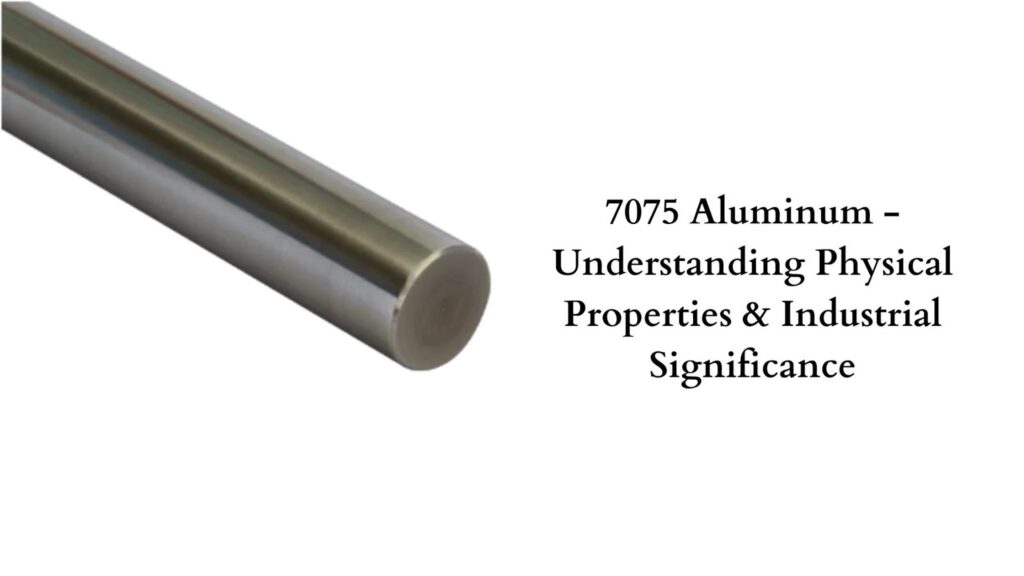Aluminium is lightweight and its physical properties are customisable to a large extent. Aluminium alloys of different physical properties are easily available in the market. If you are looking for something with high tensile strength and ductility, go with the option of 7075 aluminium alloy. It also possesses good corrosion resistance and fatigue resistance properties. Usually, industrialists need it for structural applications. Along with base metal aluminium, zinc is the second major composition in this alloy. The 7000 series signifies its excellent strength that surpasses various types of steels. Here we are going to elaborate on some important features of this alloy and its significance for your industrial need.
Compositions in 7075 aluminium
This alloy comprises more than 10 different ingredients to attain high tensile strength including:-
- Aluminium as a base
- Zinc
- Magnesium
- Copper
- Chromium
- Manganese
- Titanium
- Silicon
- Iron
Apart from these, around 0.15% of other ingredients are also added. Let;s elaborate on the physical properties of this alloy in detail.
How 7075 aluminium is strengthened
In order to improve the strength of this aluminium alloy, tempering heat treatment is implemented. Between 300 to 500 degree Celsius of temperature, it’s overall Mechanical properties changes because of the reconfiguration of crystal structure. There are numerous methods of tempering aluminium and each process gives different results from the perspective of characteristics. Let’s have a look at the mechanical properties of this alloy in detail.
Elaborating on mechanical properties
When it comes to explain the mechanical properties of an alloy, we consider six different factors as mentioned below.
1. Tensile strength
The ultimate tensile strength of 7075 aluminium alloy is 83000 psi. If you compare with the standard Steel variants, it is much higher. Tensile strength represents the maximum stress bare ability of a material before reaching its fracture point.
2. Tensile yield strength
Talking about the tensile yield strength, this a lawyer has attained the value of 73000 psi. Yield strength is different from the ultimate tensile strength. It represents how much stress a material can take before it cannot return to the original shape.
3. Shear strength
Before permanent deformation, 7075 aluminium sheet can handle the stress upto 48000 psi. This level of strength is enough for a material to be used in structural construction purposes.
4. Fatigue strength
When the material is periodically loaded with a certain amount of pressure, it is known as fatigue. Continuous force below the yield point of a material also causes microfractures. Gradually, these fractures lead a material towards fatigue failure. The fatigue strength of aluminium 7075 alloy is 23000 psi.
5. Modulus elasticity
The resistance ability of a material against deformation is known as elasticity modulus. In the case of 7075 aluminium, the elasticity strength is 10400 ksi. This level of elasticity is enough to prevent a material from deformation at high stress levels.
High tensile yield strength and modulus elasticity are the reasons why this aluminium alloy is highly demanded in the market. The most common applications of this alloy are in manufacturing gears and shafts, missile parts, aircraft fittings and regulating valve parts.

